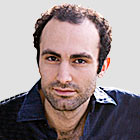Khalid Abdallah: Changing Frames and Fault-lines
 Plenary 4
Plenary 4
تغييــــــر الأطـــــــر وخطـــــوط الصـــــدع
خالد عبد الله
Abstract
The story of the Egyptian revolution carries a heavy burden. Its many tales travel across contexts and experience, within Egypt and beyond it, influencing movements and revolutions while building dreams and threatening them. Solidarity fundamentally entails sharing an interpretation of a story. How that story is told and re-told has political and historical implications that are as much about the current moment as they are about the future. Political events are hard to follow at the best of times and solidarity is broken when the thread of a story is lost or events within it become subject to confusingly competing narratives. Meanwhile, a revolution is in itself a radical break with old political frameworks and the interpretations of possibility and the present they represent. And like any story, the longer it gets the more complicated it becomes. At stake is not only solidarity within the Egyptian revolution itself, but also a story of change and how it happens, or might. Over the past four years I have worked with a range of forms and collaborators to engage in telling many of the stories of the Egyptian revolution, translating experiences and perspectives between a diverse range of contexts and audiences. With each form and each language, each event and each audience, comes a framework within which those stories can be told and shared – some infrastructural, some political, some legal, some linguistic. In this presentation I will reflect on what I see as the fault lines in translating events between contexts and the interpretative lapses that threaten meaningful solidarity. I will also reflect on strategies that have been used to attempt to bridge some of these gaps, giving my reading of certain successes and failures, while asking how to adapt and re-strategize amidst a period of extraordinary struggle and change.
تحمل قصة الثورة المصرية بين طياتها عبئاً ثقيلاً، فقد أثرت بحكاياتها المتعددة في سياق وتجارب الحركات والثورات السياسية داخل مصر وخارجها وساهمت في بناء الأحلام وتبديدها. يستلزم التضامن بشكل أساسي وجود تفسير موحد للقصة. فالكيفية التي تُروى بها تلك القصة وتُعاد روايتها تُخلف آثاراً سياسية وتاريخية في اللحظة الراهنة وعلى المستقبل. هذا ويصعُب متابعة الأحداث السياسية في أوجها وقد ينحلّ عقد التضامن عند فقدان خيوط القصة أو تعارض أحداثها مع روايات أخرى. وفي الوقت نفسه، تعد الثورة في حد ذاتها قطيعة جذرية مع الأطر السياسية القديمة والتفسيرات المحتملة وما تعكسه من واقع. وكأي قصة، كلما طالت أحداثها كلما أصبحت أكثر تعقيداً. وليس التضامن الذي حدث أثناء الثورة المصرية وحده على المحك، ولكن قصة التغيير كذلك وكيفية حدوثها او احتمال حدوثها. لقد عملت على مدى السنوات الأربع الماضية مع مجموعات مختلفه وباشكال مختلفه للمشاركة في سرد العديد من قصص الثورة المصرية، وترجمة تجارب ووجهات نظر مجموعة متنوعة من الجماهير في العديد من المواقف. ويمكننا وضع إطار لرواية هذه القصص وتبادلها، فبعض هذه القصص يتعلق بجوانب البنية الأساسية للقصة أو الجوانب السياسية أو القانونية أو اللغوية من خلال شكل ولغة وأحداث القصة فضلاً عن جمهورها. سوف أتناول في هذا العرض ما أرى أنه يمثل خطوط الاختلاف في ترجمة الأحداث بين السياقات والفجوات التفسيرية التي تهدد التضامن الهادف، بالإضافة إلى الاستراتيجيات التي تم استخدامها لمحاولة سد بعض هذه الفجوات، وسأوضح بعض الإيجابيات والسلبيات المتعلقة بدراستي، بينما أطرح سؤالاً يتعلق بكيفية التكيف وإعادة وضع استراتيجية وسط فترة من النضال والتغيير الاستثنائي.
Khalid Abdalla’s work primarily focuses on film and its relationship with political fault lines. He works as an actor, producer and filmmaker, but also in cultural production, alternative media, and as an activist. He is a founding member of three collaborative spaces in Cairo – Zero Production, Mosireen and Cimatheque. He has acted leading roles in Hollywood films, including United 93, The Kite Runner and Green Zone. He also has two upcoming films from the Arab world: In the Last Days of the City and The Narrow Frame of Midnight. In documentary film, he has producing credits on In the Shadow of a Man and the upcoming film The Vote. He also appears in the Oscar nominated The Square. Born in Glasgow and brought up in London, he lives in Cairo.